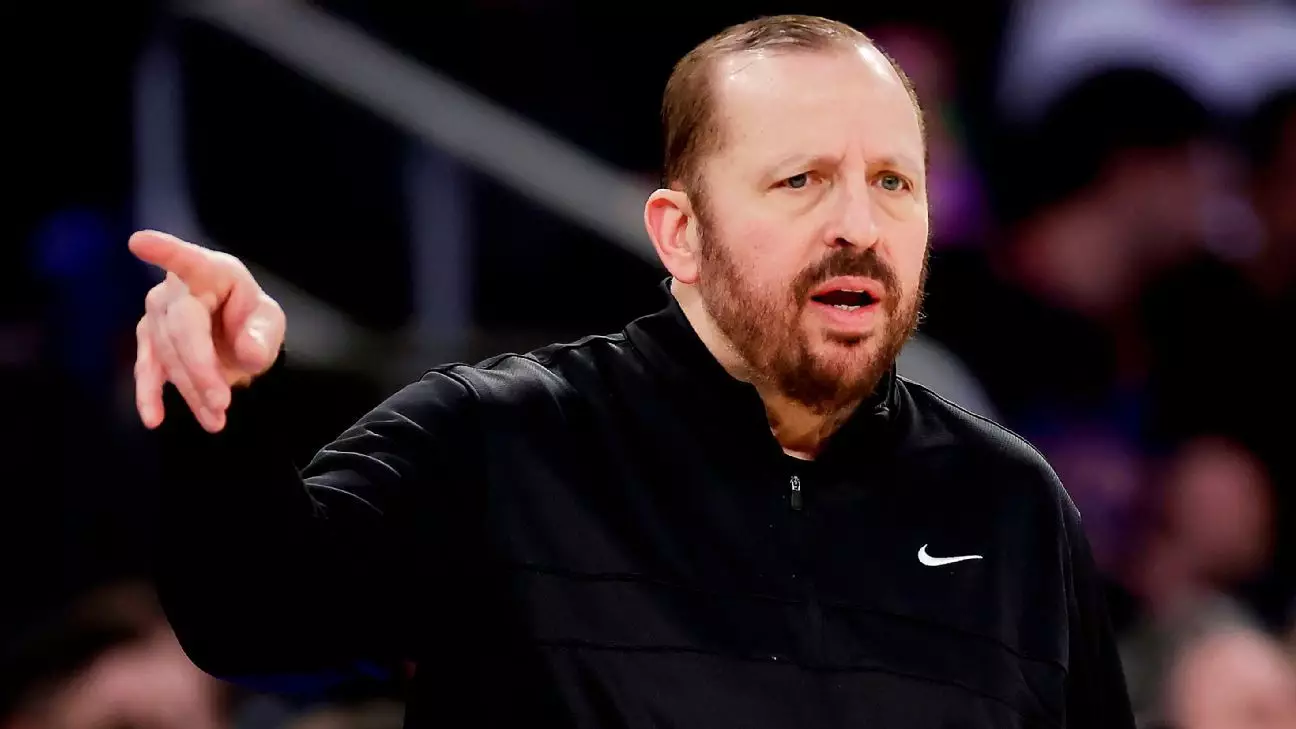In a surprising move that has sent ripples through the basketball community, the New York Knicks have parted ways with head coach Tom Thibodeau after their most promising playoff effort in a quarter-century. The decision comes on the heels of a valiant six-game battle against the Indiana Pacers in the Eastern Conference finals, a series that demonstrated both the potential and the limitations of the Knicks’ burgeoning roster. While Thibodeau undeniably transformed the team from perennial underachievers into playoff contenders, the organization ultimately decided that a new direction was essential in their quest for championship glory.
What makes this firing particularly intriguing is the juxtaposition of Thibodeau’s recent successes against the expectations that accompany such a passionate fanbase. Under his watch, the Knicks achieved back-to-back 50-win seasons for the first time since 1995 and remarkably upset the defending champion Boston Celtics—a feat made even more commendable by their prior dismal record against Boston during the regular season. However, the desire for immediate and sustained success often holds organizations captive, demanding not just good performances but great ones.
The Cost of Repeated High-Stakes Moves
The Knicks’ management, led by team president Leon Rose, emphasized the organization’s commitment to winning a championship above all else. This high-stakes environment often requires risk; Rose’s statement can be interpreted as a mandate to not merely aim for mere playoff appearances, but to seize the ultimate prize. However, this relentless pursuit can also lead to hasty decisions that overlook the long-term development of a program. While Thibodeau’s history might inspire criticism for not being adaptive to modern load management and player development methods, it’s crucial to examine whether his results warranted more time to mold the team he had put together in his image.
Thibodeau’s coaching philosophy has historically focused on maximizing player output through high minutes and intense practices, which can yield immediate results but may not be sustainable over the long haul, especially given the recent evolution of player wellness management in the NBA. The Knicks, like several teams before them, have had to ride that fine line between winning now and preparing for the future. Thibodeau’s heavy reliance on his starting unit stands in stark contrast to the growing trend of strategic rest and depth utilization seen across the league. This raised questions about whether his strategies developed a fitness environment conducive for sustained playoff deep runs.
The Heart of the Knicks: A Changing of the Guard
Thibodeau’s ties to the Knicks run deep—he was an assistant coach under the famed Jeff Van Gundy during the franchise’s better days in the 1990s. His departure inevitably feels like a loss to many who have followed the team during its arduous journey through coaching transitions and player turnover. Players like Jalen Brunson, a product of Thibodeau’s mentorship and undoubtedly the future of the franchise, expressed their surprise at the announcement, emphasizing loyalty to a coach who shaped his professional outlook. This emotional connection can complicate transitions for teams, as players navigate a new hierarchy while hoping to maintain the competitive spirit that Thibodeau fostered.
Yet this change also presents an opportunity for the Knicks to recalibrate their identity in an evolving NBA landscape. With a core of talented, young athletes and a recent string of high-stakes trades to bring in marquee players, the franchise is at a crossroads where strategic direction could dictate their next successful chapter. This opening might attract innovative coaching minds capable of optimizing not just the output of stars but also the development of young role players, who may redefine the trajectory of this historic franchise.
A Future Reimagined
As fans process the shock of this coaching change, the focus must now shift to what the front office plans to do next. The timing of this decision raises questions about who will be brought in to lead this new iteration of the Knicks. Will they opt for a coach who brings a progressive approach or someone who aligns with the Knicks’ historical ethos? The intrigue lies not just in the next head coach but in the broader vision for a franchise that has teased its supporters with sparks of hope and now stands poised for potentially transformational change.
The Knicks find themselves at a fascinating juncture, where tradition meets evolution, and the urgency for a championship reigns supreme. Today, in Madison Square Garden, the winds of change are palpable, and with it, the promise of new beginnings.


Leave a Reply